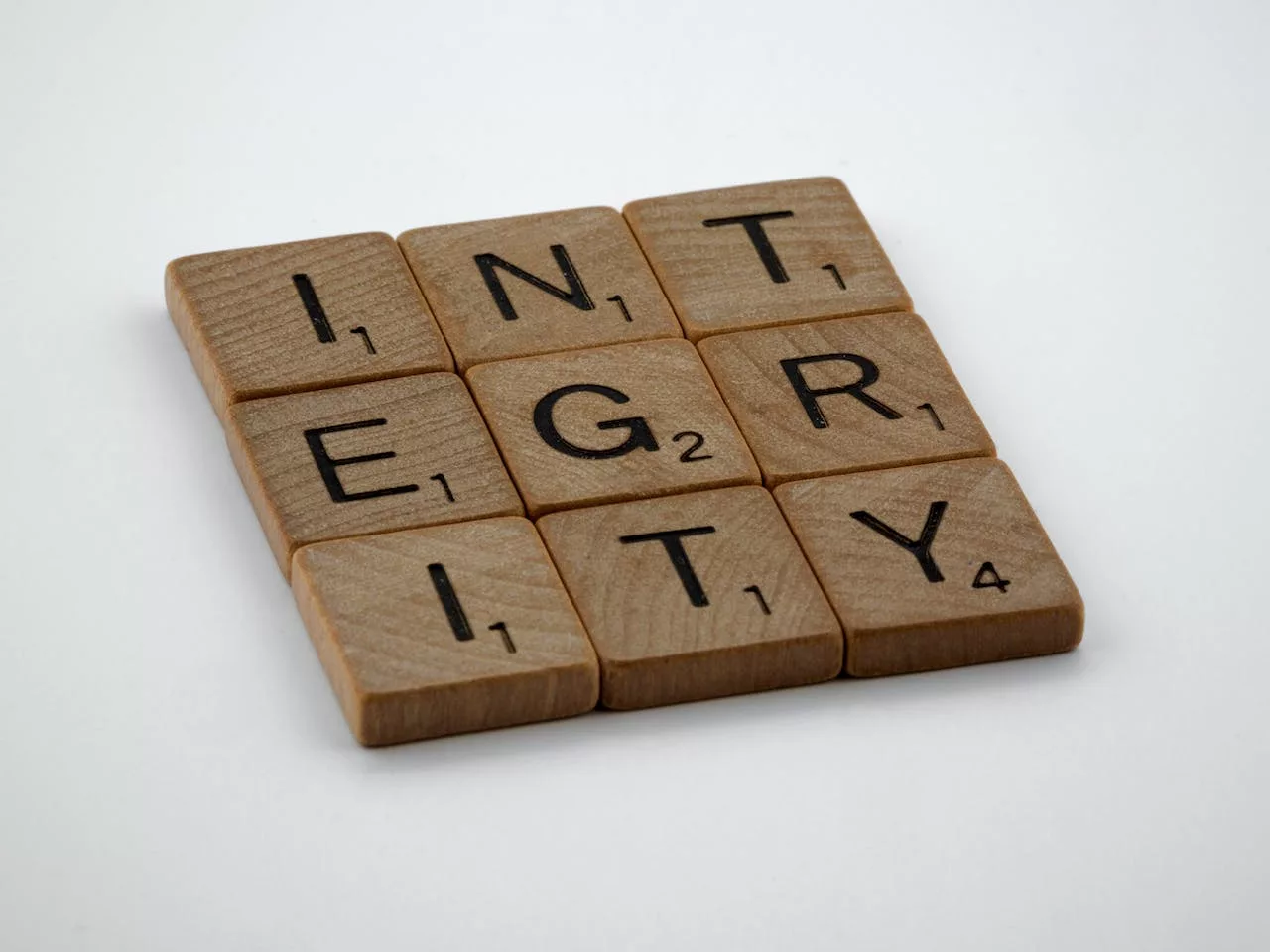Integrity refers to the quality of being honest and having strong moral principles. It is a personal choice to hold oneself to consistent ethical standards. In practice, integrity involves a range of behaviors and attitudes that are considered key components of this vital characteristic:
1. Honesty
Speaking the truth and representing oneself and situations accurately.
2. Consistency
Acting the same way in all circumstances, not just when it’s convenient; maintaining the same ethics in both public and private life.
3. Responsibility
Acknowledging and accepting the consequences of one’s actions, good or bad.
4. Reliability
Following through on promises and commitments, showing others they can depend on you.
5. Fairness
Treating everyone with equal respect and consideration, ensuring that one’s actions do not unduly benefit or harm others.
6. Respect for others
Recognizing the intrinsic value of each person and treating everyone with courtesy and consideration.
Foster positive connections through respect – Click here to cultivate a culture of honor
7. Courage
Standing up for what is right even when it is difficult, and being willing to admit mistakes.
8. Trustworthiness
Being dependable and creating trust in relationships through transparency and dependability.
Build meaningful connections through trust – Click here
Displaying integrity isn’t just about following a moral code but also about contributing to an environment where honesty, trust, and accountability are valued and promoted. People with high integrity are typically seen as trustworthy and reliable, and they often serve as ethical role models in their personal and professional communities.
Personal Life: Integrity’s Role and Impact
In personal life, integrity acts as the cornerstone for building trust and respect among family, friends, and social circles. It involves being honest, reliable, consistent, and ethical in our actions, which fosters deeper and more meaningful relationships. When individuals demonstrate integrity, they are seen as trustworthy, and others are more likely to confide in them, knowing their words and actions are guided by moral principles.
Having integrity also aids in developing a strong sense of self-worth and self-respect. When individuals act congruently with their values, they experience a sense of wholeness and contentment, knowing that they are true to themselves. This congruency reduces inner conflict and promotes peace of mind, as actions and thoughts are aligned, leading to a harmonious existence.
In times of adversity, individuals with integrity often display resilience, as they are clear about their values and can navigate difficult situations with the moral compass that their integrity provides. This clarity helps in making tough decisions more confidently and mitigates the stress associated with choices that might otherwise compromise one’s values.
Integrity also serves as a guide in maintaining personal relationships. It cultivates an environment where others feel valued and respected, resulting in stronger, more reliable bonds. When friends and family members relate with someone who consistently acts with integrity, they develop deeper trust, leading to enduring connections that are based on mutual understanding and appreciation.
By living with integrity, individuals set a positive example for others, particularly for younger generations, influencing them to adopt similar values. This virtuous cycle helps instill a sense of ethical responsibility and moral conduct within the community, contributing to a more principled and cohesive society.
Professional Life: Integrity’s Role and Impact
In professional life, integrity is invaluable as it establishes a reputation for reliability and ethical conduct that can lead to career advancement, strong working relationships, and a respectful workplace environment. Professionals known for their integrity are often sought after for leadership roles and responsibilities because they can be trusted to act in the best interest of their organization and its stakeholders.
Integrity at work involves fulfilling commitments, taking responsibility for actions, and being transparent in communications. This level of honesty earns the respect and confidence of colleagues, managers, and clients, which is essential for teamwork and collaboration. Employees who display integrity are more likely to be entrusted with important tasks and decision-making roles since they are seen as capable of handling such responsibilities with fairness and ethical consideration.
Moreover, organizational integrity creates a trustworthy brand image and is crucial in establishing long-term business relationships. When companies operate with integrity, they attract customers, partners, and employees who value and prioritize ethical behavior. This alignment can lead to sustainable business practices and a strong corporate culture that supports ethical conduct.

